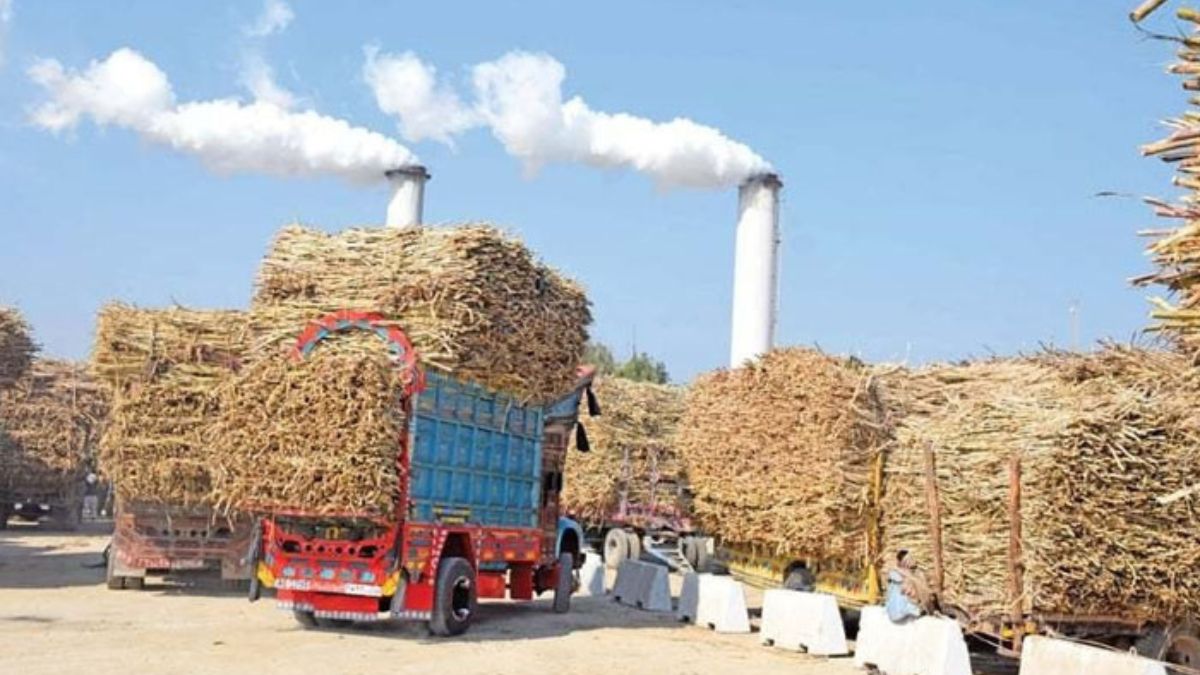Punjab remains the backbone of Pakistan’s sugar production, supplying a major portion of the national output. In 2025, the province continues to expand its sugar industry, which supports agriculture, generates employment, and boosts exports. Therefore, understanding the current dynamics of sugar mills in Punjab is crucial for both industry stakeholders and policy makers.
Updated Industry Statistics
Currently, Punjab has 78 operational sugar mills, reflecting a consistent rise from previous years. This growth results from increasing demand and gradual liberalization of sugar trade policies. Notably, over 94% of these mills are privately owned, which highlights the strong role of the private sector. Meanwhile, a few large groups also operate in multiple cities.
Read More: SBP Projects Rs2.4 Trillion Profit for FY25 Amid Economic Stabilization
Major Sugar Mills in Punjab
| Mill Name | Location | Group/Ownership | Additional Operations |
|---|---|---|---|
| Ramzan Sugar Mills | Chiniot | Sharif Group | Bagasse-based 100MW power plant |
| Tandlianwala Sugar Mills | Various Cities | Akhtar Group | Ethanol & CO₂ production |
| Shakarganj Limited | Lahore | Public Company | Agro-industrial products |
| JDW Sugar Mills | Rahim Yar Khan | Jahangir Tareen Group | Power generation & farming |
| Haseeb Waqas Sugar Mills | Nankana Sahib | Private | Sugar refining, co-gen energy |
These mills not only produce sugar but also generate energy and export byproducts, making them key players in the provincial economy.
Market Prices and Cost Challenges
The Punjab government maintains strict price controls. The ex-mill sugar price is fixed at Rs 140 per kg, while the retail price remains capped at Rs 130 per kg. Although this benefits consumers, it creates financial pressure for sugar mills.
Over the past two years, sugarcane prices have doubled from Rs 300 to Rs 600 per maund. Additionally, mills are burdened by rising fuel prices, storage costs, and expensive financing. As a result, many struggle to maintain profitability.
To stay afloat, mills now rely on efficient production, diversification, and occasional exports. Without timely reforms, sustainability may remain at risk.
Export Policy and Deregulation Efforts
In 2024, the Punjab government permitted limited sugar exports to reduce surplus stock and inject liquidity into the sector. This policy shift offered immediate relief to mills while also helping stabilize the local market. Consequently, the Pakistan Sugar Mills Association (PSMA) is now urging for complete market deregulation.
Although Punjab has already taken initial steps, federal-level deregulation is essential for consistent sugar pricing across provinces. If approved, this move could allow market forces to determine prices like in the case of wheat and rice.
Oversight, Reforms, and Challenges
To improve transparency, the previous government launched a Track-and-Trace system, aimed at reducing tax evasion and monitoring sugar sales. Initially, it helped increase compliance; however, weak enforcement reduced its long-term effectiveness. Moreover, political influence in mill licensing and policy decisions continues to raise concerns about fair competition.
Read More: Fauji Fertilizer Shows Interest in Buying PIA
2025 Industry Outlook
Looking ahead, Punjab’s sugar sector is heading toward major policy transformation. If deregulation gains federal approval and export policies remain stable, mills may enjoy greater profitability and operational freedom. At the same time, the government must ensure sugarcane farmers receive fair compensation and consumers are protected from price hikes.
Summary Table
| Factor | Detail |
|---|---|
| Total Mills in Punjab | 78 (2025) |
| Ownership Structure | 94% private, few corporate groups |
| Retail Sugar Price | Rs 130 per kg |
| Sugarcane Price (2025) | Rs 600 per maund |
| Export Status | Partially permitted |
| Reform Focus | Deregulation, better monitoring |
Conclusion
In conclusion, Punjab’s sugar industry in 2025 stands at a critical juncture. With 78 operational mills and rising production costs, the sector is under pressure to adapt. While partial deregulation and controlled exports have provided short-term relief, long-term sustainability depends on full market liberalization, improved policy enforcement, and balanced support for both mill owners and farmers. If reforms continue and political will remains strong, Punjab’s sugar mills can thrive as a competitive, transparent, and export-oriented sector within Pakistan’s agro-economy. Keep visiting: Bloom Pakistan
Read More: National Savings Announces Top Winners of Rs200 Prize Bond Draw in Quetta









